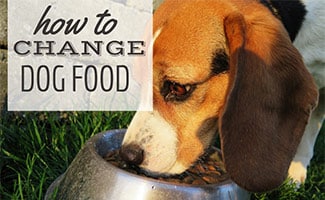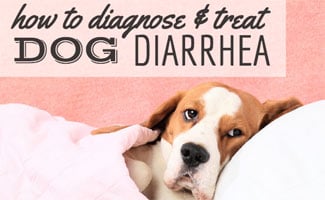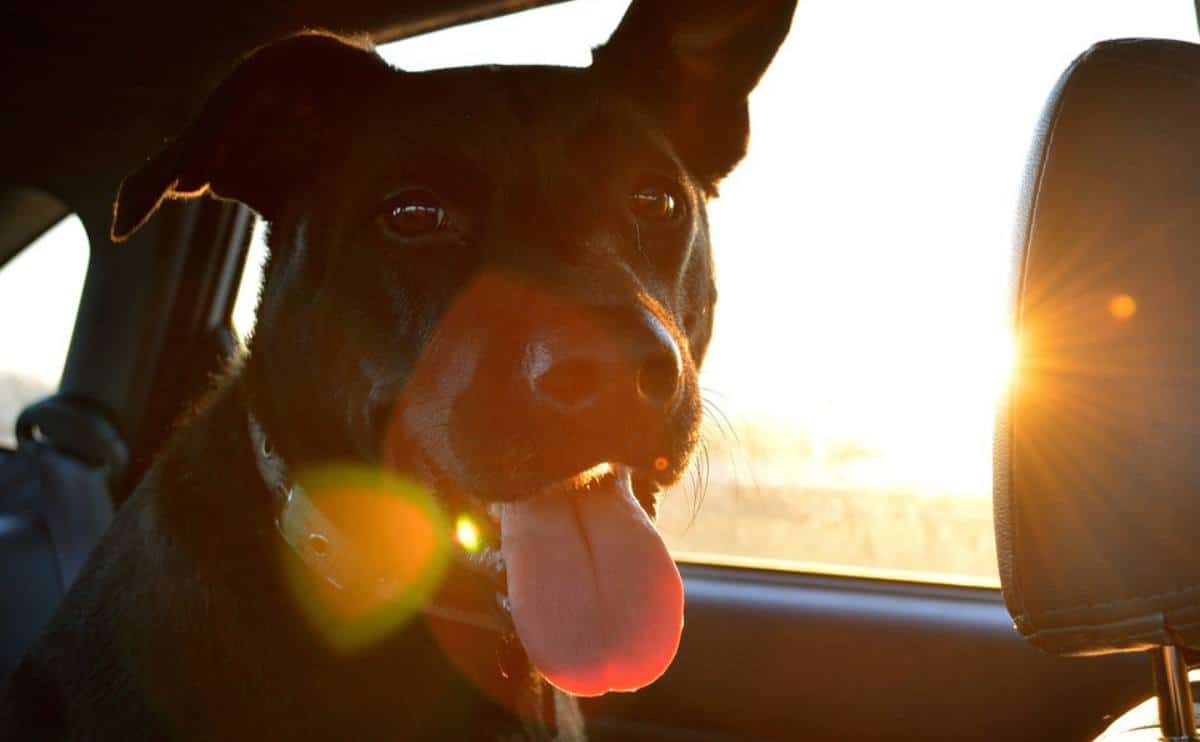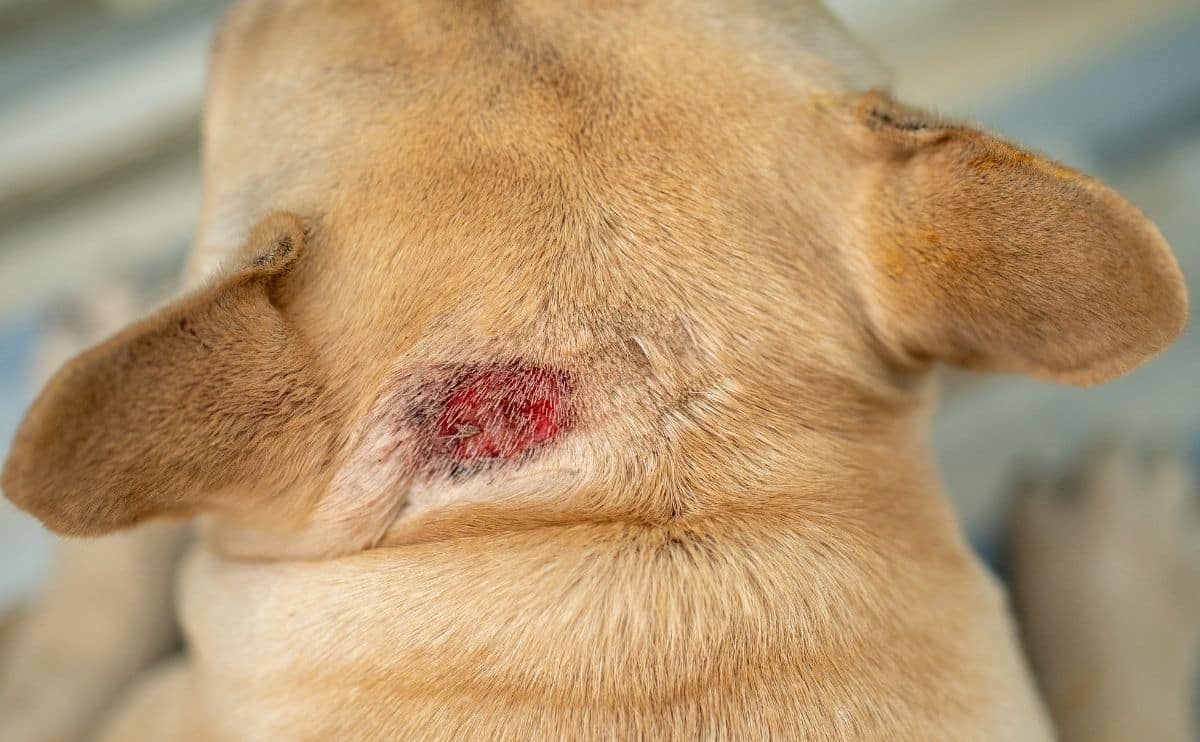Dog Vomiting: Causes, Symptoms, Diagnosis & Treatment
When you purchase through links on our site, we may earn a commission. Here’s how it works.
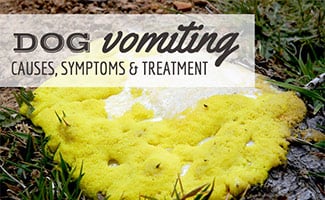
Longtime dog parents know that our furry friends will eat almost anything under the sun, even if it makes them throw up immediately. Other times, our pups puke for no apparent reason. While occasional vomiting may not be a cause for concern, frequent or severe vomiting can be a sign of a serious condition. Here, we’ll help you figure out why your dog is vomiting, other symptoms to look out for, what you can do to help your pup, and when it’s time to seek veterinary care.
Table of Contents
Regurgitating vs Vomiting
First, it helps to know the difference between vomiting and regurgitating to help you and your vet determine a more accurate diagnosis of your dog’s condition.
Vomiting involves the body’s process of forcing the contents of the stomach and upper small intestine up through the esophagus and out of the body. This process ejects food, fluid, and other materials. Just before this, dogs usually drool, retch, and have abdominal contractions.
On the other hand, regurgitating is a passive process, appearing as if undigested food and fluids are falling out of a dog’s mouth. Signs of regurgitation include difficulty breathing and coughing just before food is expelled. Regurgitated contents are undigested and may retain the cylindrical shape of the esophagus.
Interestingly, some dogs may consume their own vomit, a behavior explored in our article on why dogs eat their vomit.
Causes Of Dog Vomiting
Dogs vomit for all kinds of reasons, many of which aren’t a major cause for concern. But there are certain cases when your dog throwing up may indicate a serious health problem.
Non-Life-Threatening Causes
Eating Too Fast
Some dogs wolf down their food like they haven’t eaten in days. If your dog is vomiting right after eating, try smaller and more frequent feedings instead of one or two big meals. See more tips for dogs who eat too fast in our canine bloat article.
Eating After Exercise
Eating immediately after exercise can also cause dog vomiting, so be sure to delay feeding for 30 minutes or longer after strenuously walking or playing with your dog.
Change In Dog Food
Sometimes a change in your brand of dog food can cause vomiting. When switching up your dog’s diet, experts recommend taking it slow. Over the course of about a week, slowly start mixing in more and more of the new food into less and less of the current food until the transition is complete. Read our article on changing dog food for more specific details.
Food Intolerance
In general, dogs don’t digest fatty foods and milk products well. These foods can cause an upset stomach, vomiting, diarrhea, and flatulence, so make sure you don’t feed your dog table scraps or high-fat dog food.
Motion Sickness
This cause is typically easy to determine — your dog’s tummy simply may not tolerate motion. If your dog suffers from motion sickness, keep his car trips to a minimum. For those times that require a car ride, ask your vet for recommended dog-friendly medications (Cerenia® is a popular vet-prescribed drug). Dramamine is also generally considered safe for dogs, but check with your vet first before giving it to your dog.
Post-Operative Nausea
Many dogs suffer from nausea and occasional vomiting after surgery, and your vet may have already given you medication to help ease his symptoms while he recovers. However, it’s always a good idea to talk to your vet about any symptoms your dog is experiencing after surgery.
Causes For Greater Concern

You should consult your vet if your dog has an acute or sudden bout of intense vomiting, especially if he doesn’t otherwise vomit occasionally. These cases could be a sign of:
- Ingestion of foreign bodies (e.g., bones or pieces of chew toys) that are lodged in the gastrointestinal (GI) tract.
- Ingestion of toxic substances. See which foods and plants are poisonous for pets.
- Gastroenteritis, an inflammation of the intestines and stomach. Other symptoms include abdominal pain and diarrhea.
- Intestinal parasites, like roundworms, whipworms, hookworms, tapeworms, and protozoa.
- Rotavirus, an intestinal viral infection that typically affects puppies and is rarely serious or fatal.
- Parvovirus, a severe and highly contagious illness, particularly for puppies. Symptoms include vomiting, diarrhea, fever, and lethargy.
- Pancreatitis, a disease that causes inflammation in the pancreas. Other symptoms include abdominal pain, loss of appetite, appearing hunched over, fever, and diarrhea that’s greasy and yellow.
- Canine bloat, a quickly developing, life-threatening illness that requires immediate attention. Symptoms include foamy vomit, retching (vomiting nothing), a distended (bloated) abdomen, pacing, and inability to lie down.
- Heatstroke symptoms include excessive panting, drooling, diarrhea, redness in gums, the inability to move around, and even loss of consciousness.
- Liver disease, which can also cause a loss of appetite, weight loss, increased thirst, and yellowish eyes, tongue, and gums.
- Kidney disease, which is more often seen in older dogs. Other symptoms include lethargy, diarrhea, constipation, depression, weight loss, and increased thirst.
- Cancer, which typically affects older dogs. You can learn more about the signs of cancer in dogs.
Serious Vomiting Symptoms
If your dog is exhibiting any of the following types of vomiting or related symptoms, it’s imperative to seek veterinary attention as soon as possible.
- Vomiting with other symptoms, like fever, lethargy, weight loss, etc.
- Chronic or continuous vomiting
- Retching (going through the motions of vomiting but nothing happens)
- Vomiting blood
- Bloody diarrhea
- Seizures
Dog Vomiting & Diarrhea
Many GI-related infections and illnesses can cause vomiting and diarrhea at the same time. This can also occur when your dog has ingested something that is toxic or simply not agreeing with him. Take your dog to your vet if your dog is suffering from vomiting and diarrhea, as this could indicate a serious health condition.
Dangers Of Dehydration
If your dog is vomiting with diarrhea or just has one or the other, the most important thing to do is to keep your dog hydrated. A dehydrated dog can quickly become seriously ill, so if you notice any of these signs of dehydration, take your dog to your vet immediately.
Keep in mind, though, that vomiting and diarrhea will make a dog feel so lousy that they may want to even drink water.
- Lethargy
- Excessive panting
- Dry nose or gums
- Sunken eyes
- Loss of skin elasticity
For more specific details on dogs suffering from diarrhea, see our article on diagnosing and treating dog diarrhea.
What Is My Dog Throwing Up?
In some cases, the cause of vomiting is related to what your dog is throwing up. Knowing what your dog’s vomit looks like can help you and your vet get to the root of the problem.
- Undigested food
- White foam
- Bile or yellow bile
- Blood
Note: Consult your vet immediately if you notice bones or other foreign objects, e.g., pieces of his toys, in your dog’s vomit. You want to make sure he doesn’t still have these substances lodged in his GI tract, which could lead to a serious and even life-threatening condition that can require costly surgery. Read more about intestinal blockage in dogs. In some cases, you may need to force your dog to vomit.
Diagnosis

Because the causes of dog vomiting are so varied, diagnosing a dog’s vomiting can be challenging, even more so if the reasons aren’t immediately obvious.
Questions To Ask Yourself
These are a few of the questions you should be prepared to answer when speaking with your vet:
- What symptoms is your dog experiencing, other than vomiting?
- How often does the vomiting occur?
- How is his attitude and appetite?
- How soon after eating does the vomiting occur, or is it inconsistent?
- What does the vomit look like?
Needing A Vet’s Diagnosis
Even if the cause of your dog’s vomiting is obvious, your vet will likely run some diagnostic tests to evaluate your dog’s overall health. Testing may include blood work, urinalysis, fecal analysis, and possibly an ultrasound or abdominal X-ray.
Treatment
It’s always best to follow your vet’s recommendations for treatment. If your vet believes home treatment is all your dog needs after a bout of vomiting, here are some tips.
- Hydration: Make sure you keep your dog hydrated by giving him ice chips or small amounts of water. This will help him keep the water down rather than throwing it up. Dog water fountains are a good way to make sure your pup drinks plenty of water.
- Withhold food: Fasting your dog for at least a few hours will give his GI tract a chance to rest and recover from the bouts of vomiting. Consult your vet first before fasting your dog. Continue to offer your dog water while he’s fasting.
- Reintroduce bland food: When you do this, start with small amounts of bland food like boiled potatoes, soft white rice, and well-cooked, skinless, unseasoned chicken. You could even try baby food that’s free of any type of garlic and onion.
What Can I Give My Dog For Vomiting?
Like with humans, it’s difficult to give your dog any kind of medicine when he can’t keep anything down. But here are some common treatments you might want to consider. As with any treatment, always consult a vet before giving your pet medicine or supplements.
Antacid Medication
It can help to give your dog a little bit of bismuth subsalicylate, like Pepto-Bismol, crushed and mixed with water (the amount will depend on your dog’s weight — consult your veterinarian). Talk with your vet first before giving your dog an antacid to make sure that the medicine is safe for your dog.
Probiotics
A long-term solution to ongoing digestive issues could be a dog probiotic. Probiotics for dogs work the same way as they do for humans. They’re formulas containing living, gut-friendly bacteria found naturally in the digestive tract and other areas of the body.
The goal of ingesting probiotics is to maintain healthy levels of good bacteria, prevent gastrointestinal problems, and boost the immune system after it’s been disrupted by illness, infection, antibiotic treatment, or other stressors.
There are a ton of pet probiotic products available, so be sure to read our article that highlights the best probiotics for dogs and includes more information on how these products can help solve your pup’s digestive problems.
A Personal Account Of Life-Threatening Vomiting

In some cases, dog vomiting can be life-threatening, requiring immediate care and even hospitalization or surgery. Here’s Nancy’s frightening account of what happened with her Lhasa Apso, Piper.
“At about 12:30 a.m. on a Sunday, our three-year-old Lhasa Apso, Piper, became very ill. I was up with her all night and made an appointment with my vet early the next morning. He diagnosed her with a bacterial infection based on lab tests (bloodwork, urinalysis), then gave her a dose of fluids, injections to help with the symptoms she was experiencing, along with three medications.
The next few days were stressful. On Monday she did not eat at all. On Tuesday we had her back at the vet for more fluids and she did not eat that day either. By Wednesday, we were back at the vet at 7:30 a.m. X-rays confirmed she had Hemorrhagic Gastroenteritis (HGE) and she was admitted immediately.”
HGE is an acute disorder of dogs that occurs suddenly, without warning in young — 2 to 4 years old — healthy, small dogs. It is characterized by vomiting and bloody diarrhea, and other symptoms include a painful abdomen, decreased appetite, dehydration, depression, and lethargy. HGE can affect any breed, age, or size of dog, but vets see it most in small and toy breed dogs like Yorkshire Terriers, Pekingese, and Lhasa Apso (Piper’s breed).
There isn’t a firm verdict on the cause of HGE. It can be dietary-related or due to ingesting a toxin; even pancreatitis can cause HGE. Stress, anxiety, ulcers, trauma, existing bacterial disease, or parasites are all possible causes as well. This makes diagnosing HGE challenging, and if it’s not treated immediately and early, it can be fatal.
Dogs with HGE are severely ill. Dogs who experience HGE are more prone to HGE in the future as well. Because vomiting and diarrhea are extremely dehydrating, intravenous (IV) fluid therapy is needed to restore hydration and replace electrolytes, like potassium, that were lost in the vomiting and diarrhea. Treatments such as antibiotics and anti-nausea and anti-diarrheal medications may be administered. Dogs are usually not fed during the first 24 hours of treatment.
Piper was hospitalized and given two days of IV fluid therapy along with medication. Her pet parents are happy to report she made a full recovery and is back to her adorable self!
Piper’s Pet Insurance Claims
- Veterinarian expense claims: $1,489
- Healthy Paws Pet Insurance reimbursement: $1,110
- (80% reimbursement rate/$200 deductible)
Frequently Asked Questions
Here are the questions we’ve received most frequently from our readers.
1) Why Is My Dog Vomiting Once A Week?
There are many reasons your dog could be vomiting once weekly. It’s important to consult with your dog’s vet about any potential health concerns. Your dog could have a buildup of bile or be experiencing something more serious, so a vet’s knowledge is important to help your dog.
Personal Experience
My dog, Sally, does this when there are changes in our household. Both times we’ve brought our newborns home from the hospital after birth, Sally has received slightly less attention, and that affects her, understandably. Walks, meal times, and routines change slightly, which causes her to be anxious, resulting in her throwing up.
For Sally, she would typically get anxious when I left the house for 15 minutes to do a quick walk with my newborn or pick my son up from daycare. (I gave birth via c-section, so I was unable to bring Sally with me on walks for a period of time because of weight restrictions.) Sally has always done well with being left out of her crate for short periods like this. However, these short trips out of the house without her would result in me finding a trail of vomit when I returned home. Sometimes I’d arrive back home, and then she’d throw up. It was always yellow bile, and she was fine afterward.
I spoke with Sally’s vet about it, and she recommended I feed Sally or give her treats to have something in her stomach before leaving the house. Our vet thought that Sally was more prone to vomiting if her stomach was empty when I left the house. After making this adjustment, we stopped having issues with Sally vomiting weekly. – Kimberly A., Canine Journal
2) Why Do Dogs Eat Grass And Vomit?
Some dogs consume grass and vomit afterward. But is the grass causing your dog to have an upset stomach and end up vomiting, or is your dog eating the grass to help alleviate an already existing upset stomach? It’s kind of like asking, “Which came first, the chicken or the egg?”
Grass is a good source of fiber, and dogs may eat it to help them digest food and pass stool as a way to self-medicate. However, you don’t want your dog eating grass if it’s been treated with chemicals. If your grass-eating dog shows signs of stomach discomfort, you may want to visit the vet for a possible medical problem like pancreatitis, inflammatory bowel disease, or gastric reflux. 1 Learn more about why dogs eat grass and how to get them to stop.
3) How Can I Clean Up Dog Vomit?
Find out how to get a dog’s vomit out of carpet with the five steps below.
- Scrape the excess vomit off the floor and put it in a plastic bag (that way, you can take it straight to the trash outside and not have it smell up your house).
- Sprinkle baking soda or cornstarch on the stain to soak up the puke for 15 minutes.
- Vacuum up the baking soda/cornstarch.
- Mix the following and use a white cloth to dab the stain with this solution:
- 1 tablespoon of dish soap (e.g., Dawn)
- 1 tablespoon of white vinegar
- 2 cups of warm water
- Use a clean white cloth to dab the stain with cold water and blot dry to remove the soap/vinegar solution.
Learn more in our pet-safe cleaning products article.
When Pet Insurance Makes Sense
In Piper’s case — and many other cases of severe illness — the cost of getting your pet life-saving care can add up quickly. If you don’t already have pet insurance, consider getting it. Pet insurance can help save you money at the vet (in addition to saving your dog’s life). You never want to be in the situation of having to decide between your dog’s life and your budget. Check out our best pet insurance reviews for more information on the top three providers we recommend as well as our winners for various needs (older pets, multiple pets, discounts, dental, etc.). You can also use our free tool below to get multiple quotes instantly.
Watch this video to learn about the benefits of getting pet insurance and how it can help your dog and severe cases of vomiting (plus your pocketbook) in the future.
Sources: [1] VCA Hospitals
